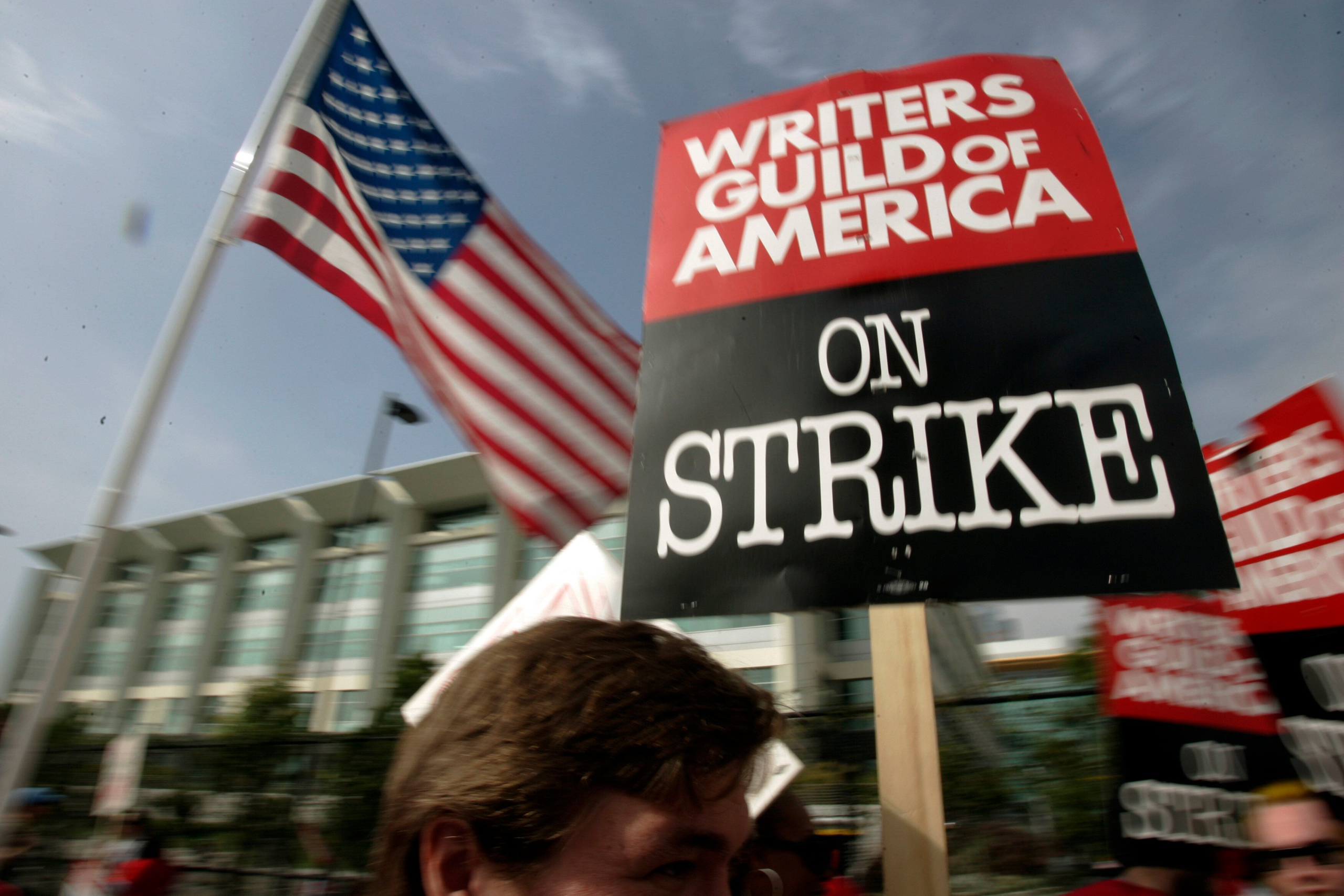
Hollywood writers launched their first strike in more than a decade on Tuesday, halting their work on film and television projects to pressure the big studios into boosting pay.
The most recent contract between the studios and the writers’ unions expired on Monday, with the two sides still in disagreement over pay rates, residuals and other key items in the streaming era. The two unions representing the workers, the Writers Guild of America West and the Writers Guild of America East, had warned of a strong likelihood of a work stoppage.
The strike involves more than 11,000 writers, most of them in Los Angeles and New York City, where the unions were planning picket lines.
Writers are expected not to produce new work for struck studios. The work stoppage could quickly affect late-night talk shows, but there would be a lag before viewers saw the effects of a prolonged strike on scripted television shows and film.
“The companies have leveraged the streaming transition to underpay writers, creating more precarious, lower-paid models for writers’ work.”
– The Writers Guild of America West and the Writers Guild of America East
Writers say that it has become increasingly difficult to receive a reliable paycheck as streaming platforms have boomed. Streaming series typically use smaller writing staffs and have fewer episodes per season compared with traditional network shows. Writers also say the system for residuals ― payments for when work is reused, such as in television reruns or the sale of DVDs ― has been undermined by the shift to streaming platforms like Netflix.
In a sign of how frustrated writers have grown, the unions recently held a strike authorization vote in which nearly 98% gave their union leaders the green light to call a strike. Nearly 80% of eligible members took part in that vote, and the unions said both figures were record highs.
As screenwriter Alex Blagg recently put it on Twitter, “[E]ven though I’ve co-created shows, won Emmys, been on The Black List, sold two features and staffed steadily in TV for 8 straight years, I still can’t figure out how to earn a stable living as a writer.”

The contract the two sides are negotiating is known as the three-year minimum basic agreement, and it sets baseline standards for work done at the covered studios, including Amazon, Apple, Disney, NBCUniversal and Netflix. Those studios bargain the agreement collectively through an industry group known as the Alliance of Motion Picture and Television Producers.
According to the unions, a growing share of writers, editors and showrunners are now receiving the industry’s minimum pay under the contract. For example, a decade ago, 10% of co-producers were working at the minimum rate and now that number is 59%. The unions also say median pay for writers and producers has dropped 4% nominally over that period.
“The companies have leveraged the streaming transition to underpay writers, creating more precarious, lower-paid models for writers’ work,” the WGAW and WGAE said in a recent memo. (HuffPost’s unionized employees are represented by the WGAE.)
Chris Keyser, a co-chair of the unions’ negotiating committee, recently described the challenges facing writers as “existential.”
“The move to the streaming model has devalued writers’ work in a way we have not seen before and leaves us with an agenda that is central to the economic survival of writers,” Keyser recently told the Los Angeles Times. “While the companies are making billions of dollars, spending more and more on streaming, writers are making less and less.”
The last time the industry’s writers went on strike was in 2007 and 2008. That work stoppage lasted 100 days.
